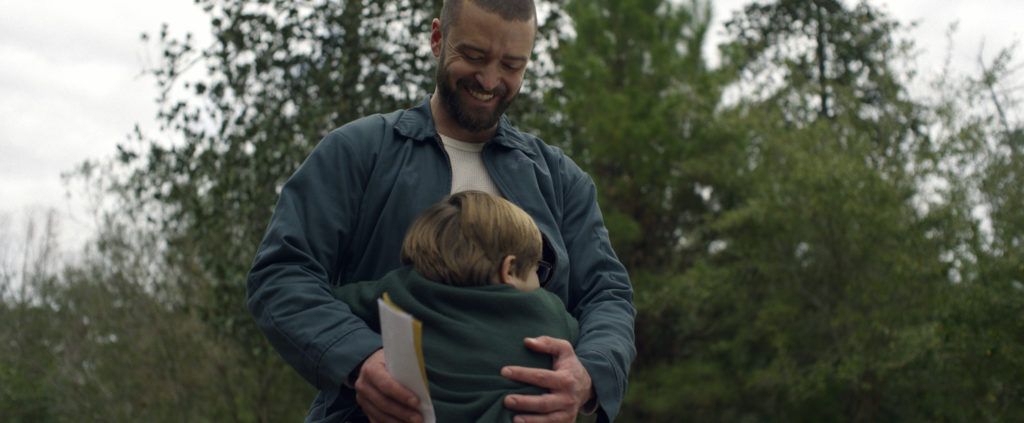Palmer

Justin Timberlake and Ryder Allen star in PALMER. (Photo: Apple TV+)
The title character in Palmer not only deserves a better set of circumstances, but he deserves a better movie, too.
At least the multi-talented Justin Timberlake showcases his range and versatility as an actor, even if this uneven redemption drama ultimately adheres too closely to formula.
Timberlake plays Palmer, an ex-con and former football star who returns to his Louisiana hometown to live with his church-going grandmother, Vivian (June Squibb), while getting back on his feet. He lands a job as a janitor as an elementary school, determined to make amends.
Under the same roof, he finds Sam (Ryder Allen), a precocious boy whose drug-addicted mother (Juno Temple) has vanished again, leaving the youngster in Vivian’s care. Sam is a nonconformist who adores princesses and experiments with lipstick, which leads to some schoolyard bullying.
When Vivian dies in her sleep, Palmer is left with a decision about caring for Sam, which requires him to overcome some biases, open his heart, and deal with some obstacles outside of his control.
At first, Palmer is contemplative and soft-spoken, suggesting he’s carrying emotional scars and uncertain about reacclimating into the community. That forces Timberlake to convey emotion primarily through body language and facial expressions. He opens up mostly due to his affection for Sam as a fellow outsider, realizing he needs to reconcile with his past in order to secure his future.
The film is directed by veteran actor Fisher Stevens (Stand Up Guys), who enables his performers to command the spotlight. Although it resonates with a certain small-town charm, that texture doesn’t carry over from the setting to the story.
Contrivances undermine the film’s intended messages of compassion, acceptance, and second chances. Despite Timberlake’s effective understated portrayal, his odd-couple chemistry as a surrogate father to Sam feels forced.
The screenplay by Cheryl Guerriero (Hunting Season) is most effective in its intimate, character-driven moments. For example, a sequence in which Palmer ponders turning Sam over to the system for purely selfish reasons is quietly powerful.
However, Palmer lacks subtlety and nuance in dealing with its broader issues such as rehabilitation and recidivism, preteen gender roles, and parental responsibility.
Such ambitions feel sincere in this exploration of fractured family dynamics, although the result is too muddled and cliched to maximize its emotional impact.
Rated R, 110 minutes.